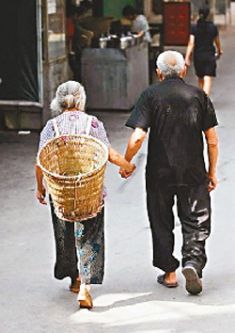Elderly parents who lose their only child
The phrase "elderly parents who lose their only child" (失独老人) refers to those elderly who lose their only child at a time when they are no longer able to have children.
Some ten million one-child families in China could end up childless over the next few decades according to the estimations of Yi Fuxian, a demographer with the China Institute for Reform and Development, the Beijing Times reported on Aug. 27, 2012.
From 1975 to 2010, 218 million Chinese families observed the country's family-planning policy and gave birth to only one child. However, the national census conducted in 2000 shows that out of every 10,000 babies, 360 will die before the age of 10; 463 will die before 25; and 760 will die before 44.
Given the fact that women over the age of 49 are usually incapable of conceiving, Yi came to the conclusion that over ten million one-child families could lose their only offspring.
Since Chinese people tend to depend on their children to support them in their old age, the death of an only child could lead to financial hardship for those aging parents.
According to a national regulation on family planning released in 2001, local governments should provide the necessary aid to one-child families if their child dies or is disabled and the parents are no longer able to conceive another baby or adopt other children. But there is no further explanation as to what this "necessary aid" should include.
Shi Bainian, a professor at China Youth University for Political Sciences, advised authorities to pay more attention to the welfare of these families.
Civil affair departments have increased their financial aid to a monthly 300 yuan for each parent in Shanghai, which is the highest in China, but this is still insufficient.
Authorities should substantially raise the financial aid to such families. In addition, greater efforts should be made to promote services for the elderly, such as old-age homes and neighborhood support groups. Understanding from other people is also crucial to these families, Shi said.
